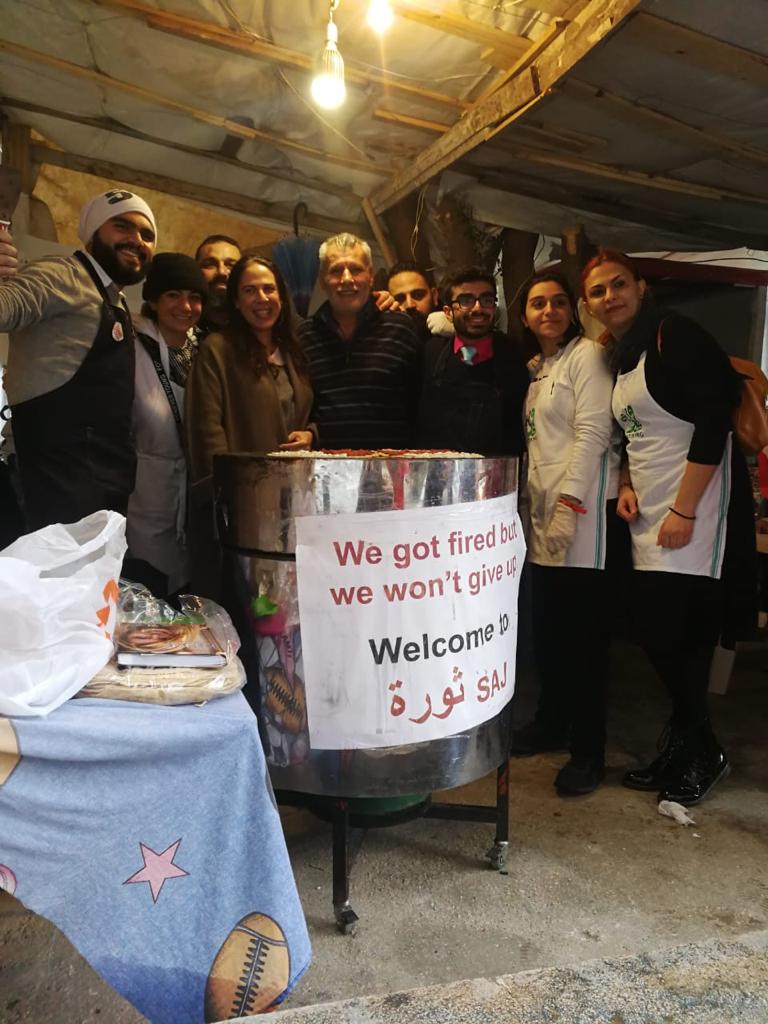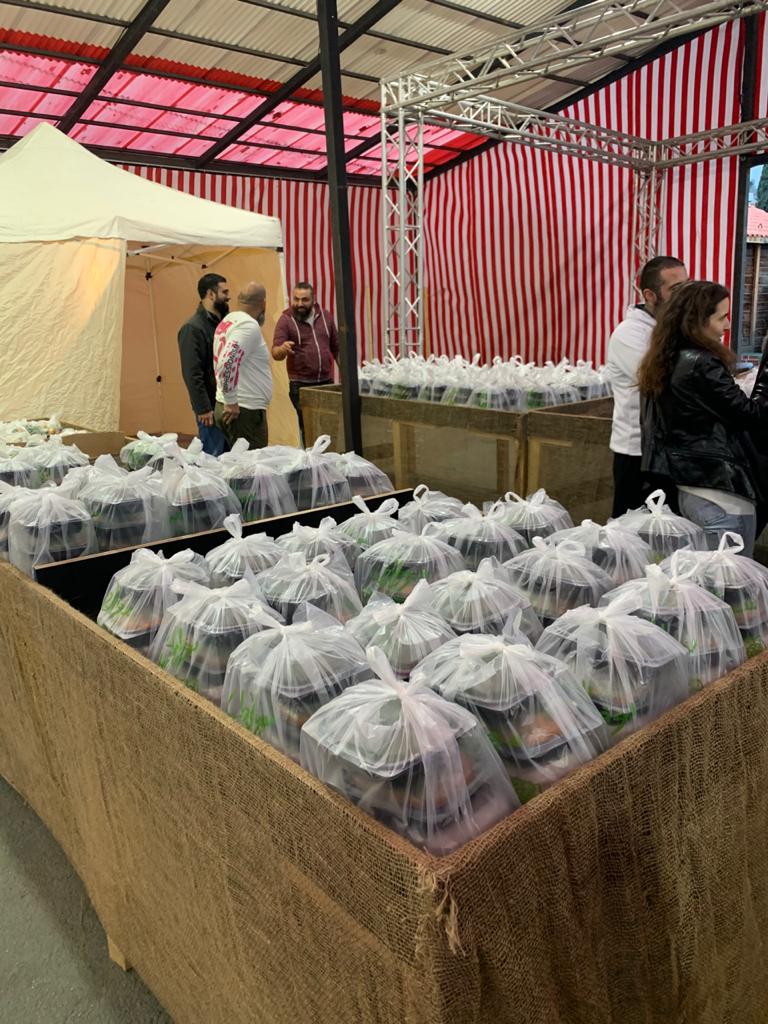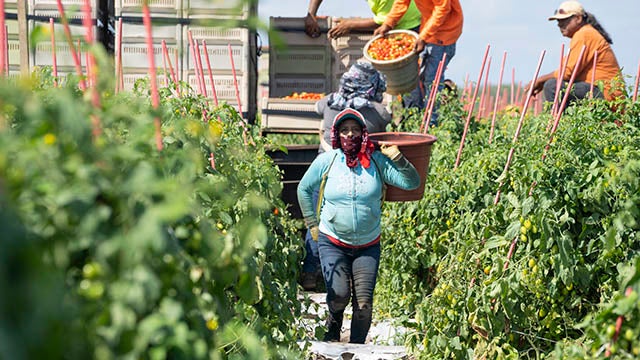When Middle East Leadership Initiative Fellow Asma Andraos, a seasoned Political PR & Event Strategist, decided to organize a Christmas dinner drive for the public mass on Martyrs’ Square in downtown Beirut, she had no idea that the 1000 meals served that night to the public would kick-start her work in providing food security to the people of Lebanon. Now, she recognizes her ability to meet the needs of her community and is activating her network to provide the support they need.
“Some people who came to the Christmas dinner said they had not sat through a proper hot meal in months, the situation was worse than I thought,” said Asma. Rooted in a slew of inequities, the “situation” she is referring to is the worst economic, financial, political, and social crisis Lebanon has faced in its modern history. From October 2019 to today, more than 50% of Lebanese people are unemployed and living in poverty. 40% of all small and middle-sized businesses have been shut down. The impact of these compounding crisis is reaching into the middle class. Asma shares, “with the deadlock that started in October and topped with COVID, the results on the ground are something like we’ve never seen before.”
The urgency to do something for her people prompted Asma to take action. Over the past four months, Asma and her tight-knit community of friends and donors have been feeding 400-500 families a month, continually working to provide food security to the people of Lebanon.

Image: Chefs stop for a photo as they cook a meal.
It started with Asma and few friends combining funds each month to provide food assistance to people in Tripoli, the second-largest city in Lebanon and one of the poorest in the Mediterranean, and to serve meals in soup kitchens in Beirut. After COVID-19 hit, the soup kitchens were transformed into food aid stations. Asma has been strategic and flexible by pivoting to not only provide food but also medicine, schooling, and other necessities to those in need.
The operation is informal. There is no NGO set-up and all communication is done via Whatsapp. Although informal, this model is exactly why Asma has been so successful in meeting the needs of people so quickly. Over the past few months, she tapped into her personal, social, and professional connections to ask for donations in order to serve even more people. AGLN Fellows are helping Asma keep up with needs. Financial support comes from close friends and family, such as Asma’s sister and Henry Crown Fellow, Chadia El Meouchi Naoum. When the demand is too big for Asma and her team, she reaches out to Walid Maalouf, a fellow Middle East Leadership Initiative Fellow and the co-founder of the Lebanese Food Bank for support. Asma believes that she can do this work because of her friends and donors, whom she calls a “circle of trust.”
As a Lebanese citizen seeing a crisis unfold in her home, and on top of that enduring a global health pandemic, it can be difficult to maintain conviction in the face of uncertainty.

Image: Food is packaged for easy takeaway.
“I go through 10 phases a day. Sometimes I just want to give it all up and stay at my house in my little bubble and be happy. But you know, when you’re a bit low, you just pull on one of the other 20 people in your community. We sort of lift each other up in turns… I believe in life. I believe in Lebanon. And the trade-off is just feeling useful and sleeping at night knowing I’m making a tiny difference in people’s lives.”

